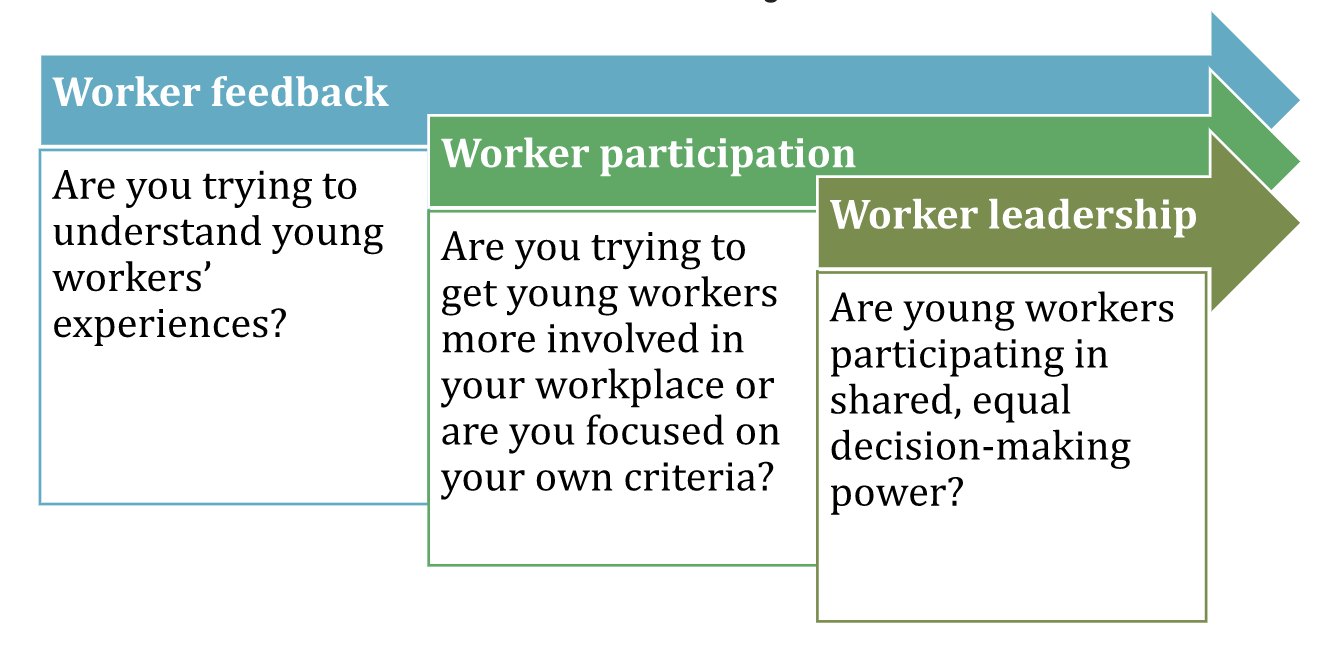Challenges Facing Young Adult Workers and their Employers
November is National Homeless Youth Awareness Month. In 2018, there were more than 25,000 homeless youth and young adults (aged 14 to 24) in the KentuckianaWorks region, equating to 17% of the region's young people. That's one-in-six transitional aged youth who lack a fixed, regular or adequate nighttime residence. Only 40% of homeless youth graduated high school, and just 15% were college or career ready. Just over half were employed at some point in the year, greatly limiting their work experience as they transition into full-time employment age. All of this data is available on the Youth and Young Adult Populations dashboard maintained by Kentucky Center for Statistics. The challenges facing even the most resourced youth transitioning from school to work have been staggering given the global pandemic and social unrest of the past several years.
A recent article from the Harvard Business Review points out the need for trauma-informed workplaces given such events: “When we are in a period of crisis, many of us look to our institutions to support and protect us. If they fail to do so, or if they take steps that we fear will harm us or those we care about, that can create a second injury, called an institutional betrayal.” The article goes on to point out that if employers respond well they build “trust and connection” which can last “for many years to come.” Combined with other programs and resources, employment access can ease these transitional periods and help to generate positive outcomes.
KentuckianaWorks, via Generation Work™, a grant through the National Fund for Workforce Solutions and the Annie E. Casey Foundation, is working with Goodwill, Metro United Way, YouthBuilds, and the Coalition Supporting Young Adults (CSYA) to explore workforce solutions geared for young adults in the region.
A look at the evolving information coming from neuroscience can help frame employment challenges facing transitional aged youth. Historically, we have viewed maturation as wrapping up at the age of 18. In a recent learning session, hosted by the Generation Work collaborative for area employers, Maryhurst experts pointed out that “though 18–24-year-olds might be given adult responsibilities, their Frontal Lobe or Prefrontal Cortex (PFC) will not be fully developed until approximately age 25.
The PFC is responsible for the brain’s executive functioning (Mizrahi, n.d.):
Adhering to social rules/norms
Planning ahead
Staying organized
Developing short- and long-term goals
Self-regulation
Self-awareness and introspection
Through repeated practice and refinement (i.e. neuroplasticity), the brain will develop and strengthen these skills into adulthood.”
As employers come to understand these facts, some are choosing practice changes which make the relationships between management and young adult workers mutually beneficial, leading to better recruitment and retention outcomes and a more need-satisfying employment experience for young adults.
At the same session, Child Trends, a research organization focused exclusively on improving the lives of children and youth, shared a set of Positive Youth Development (PYD) resources they are currently adapting for employment settings. Positive Youth Development is “an intentional, pro-social approach that engages youth within their communities, schools, organizations, peer groups, and families in a manner that is productive and constructive; recognizes, utilizes, and enhances youths' strengths; and promotes positive outcomes for young people by providing opportunities, fostering positive relationships, and furnishing the support needed to build on their leadership strengths.” As an extension of their PYD research Child Trends developed a tool called “PILOT,” an acronym for:
Positive Relationships,
Improved Skills,
Linkages across Schools, Work, Families, and Communities,
Opportunities to Contribute and Belong,
Trustworthy and Safe Settings.
For employers, Child Trends suggests that one way to begin to think about PYD approaches at the workplace is to engage workers in conversations about their experiences and ideas for improvement. Some sample questions:
What is their experience working in your company?
What might make them happier or more stable?
What might make them more efficient?
How do they see themselves growing here?
Worker voice can be seen on a continuum within an organization.
KentuckianaWorks will continue to provide learning opportunities for employers to help shape practice changes at the workplace that lead to improved outcomes in recruitment and retention while simultaneously providing a high-quality job experience for workers. Recent archived offerings include Transformation Begins by Design: Working Toward Racial Equity Through Job Redesign.
Mike Karman is the Sector Strategies Coordinator at KentuckianaWorks. He has many years of nonprofit experience, especially working with families and children.


